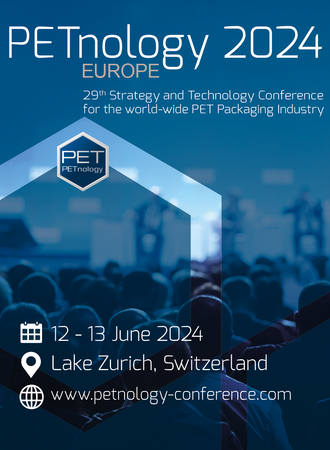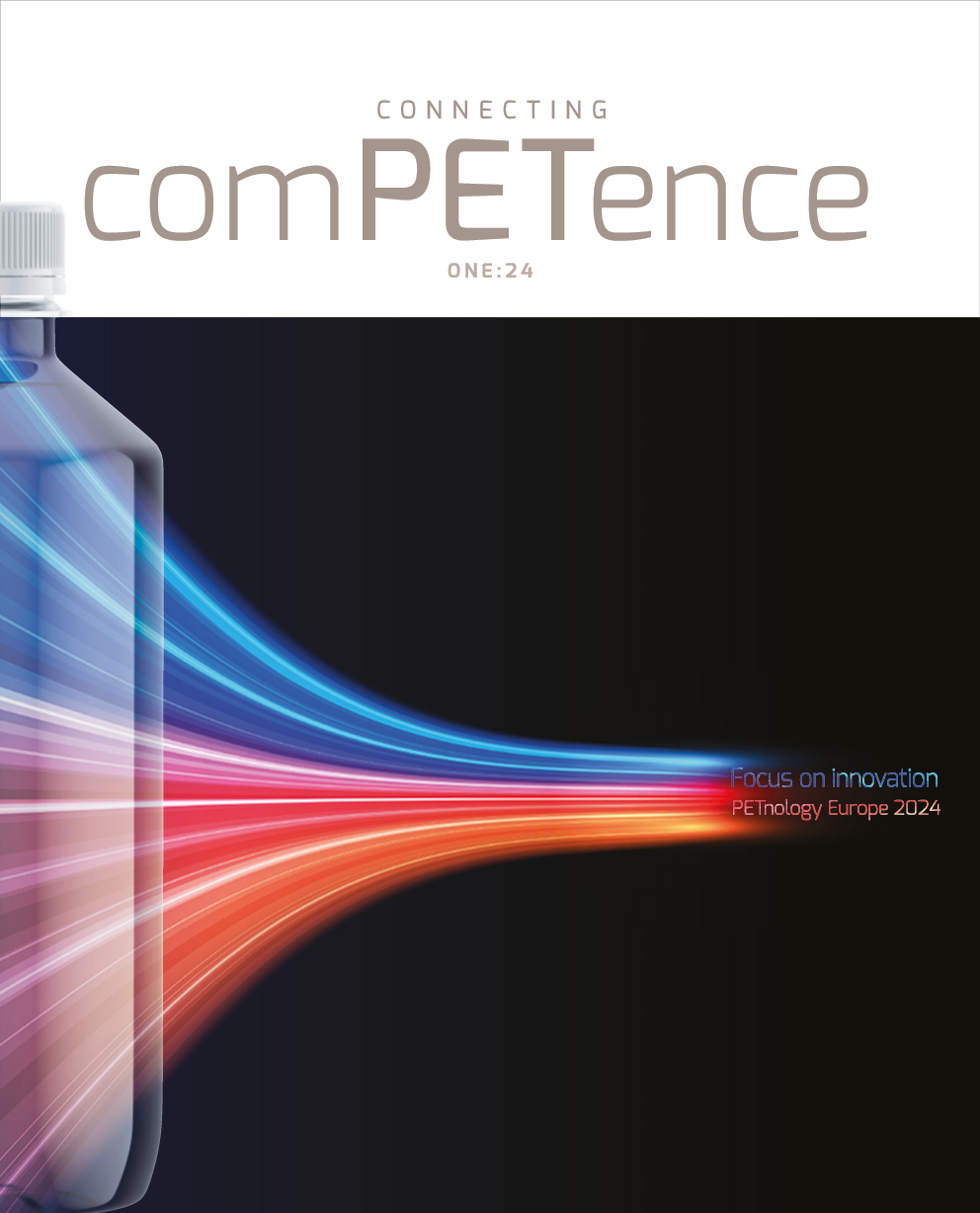Plastic pollution has become an escalating environmental problem: An estimated 11 million metric tons of plastic flow into the ocean each year – which is equivalent to 20,000 Airbus A380 aircrafts – and the volume is forecast to triple over the next 20 years. Furthermore, plastic not only pollutes the environment, it also amplifies climate change. If the plastic production continues unchecked by 2050, plastics alone will produce around 10 to 13 percent of the CO2 budget remaining to reach the 1.5-degree target. The fact is, the problem will continue to grow unless businesses and governments fundamentally rethink the way plastic is being produced, used and disposed of – both on a local and global scale.
Breakthrough in material-reduction: New NIVEA bottle with 50% less plastic
Based on intensive research and packaging development, Beiersdorf now achieved a real breakthrough: the bottle and cap of the new NIVEA Naturally Good Body Lotion has been designed to use 50% less plastic than a comparable standard NIVEA body lotion packaging. It is very thin and has a uniquely shaped bottom area which can be easily squeezed and rolled up tightly – very similar to a toothpaste tube. This brings the additional benefit to consumers that the lotion can be used easily until the last drop. The bottle is fully recyclable after usage and can be integrated into the material loop in all countries with existing waste infrastructures. Last, but not least, the transportation of the product from the factory to the retailers is also more sustainable, since the new design improved pallet utilization through its thinner and lighter packaging.
Going Circular: 90% of PET bottles in Europe will be from recycled plastic by end of 2020
To minimize its environmental footprint, Beiersdorf is following a fourfold approach: the so-called “4R’s” set the company’s frame in the search of innovative ways to “Reduce, Reuse, Recycle, and Replace” its plastic packaging across the assortment of its brands, such as NIVEA and Eucerin. The overall vision is to achieve a circular economy. One important element in this approach is the use of post-consumer recycled plastic (PCR), materials that originate from the recycling of household waste – such as materials found in the “yellow bag” in Germany. Via the use of such secondary raw materials in product packaging, natural resources are protected, and the use of fossil-based virgin plastic is avoided, hence CO2 emissions are reduced. By the end of 2020, Beiersdorf will have converted 90% of its PET bottles in Europe to include recycled material. This measure alone will save more than 1,200 tons of fossil-based virgin plastic per year. Also recent product launches, such as the NIVEA Shower Fresh Blends, have come to market in PET-bottles made from at least 97% recycled material (PCR), thus avoiding 150 tons of fossil-based virgin plastic. As a first country, Germany will have switched the vast majority of bottles of its NIVEA Shower & Shampoo range on market to recycled material before the end of this year, both PET and HDPE bottles will come from post-consumer-waste streams and hence, save around 2,000 tons of fossil-based virgin plastic. Other European countries will follow.
Driving the transformation: Beiersdorf takes action beyond its company boundaries
“As we strongly believe the global plastic problem cannot be solved in silos, but a broader collaboration and joined forces are needed, we are taking action beyond our own business. We are teaming up with our suppliers, trade partners, NGOs, scientific institutions and also with other players in our industry”, explains Jean-Francois Pascal, Vice President Corporate Sustainability at Beiersdorf. "We want to really drive the topic forward and contribute to the change we need within a broader context.” Not just words, Beiersdorf takes action and was one among 29 other companies to sign the business call for a UN treaty on plastic pollution initiated by the WWF, the Ellen MacArthur Foundation and the Boston Consulting Group (BCG.). In a joint approach, the call is to push governments to negotiate and agree on a UN treaty on plastic pollution.
In the area of “Reuse” for example, the first instore shower gel refill stations were launched in cooperation with one major German retailer, the drugstore chain dm, in selected stores. With the aim to drive reusability and to reduce single use plastic, the customized refill machine was designed to provide the highest hygiene standards, intuitive handling and innovativeness – and it won two awards: design MUSE award and Sustainability Readers Award 2020 Packaging Europe.
Beiersdorf also partners with Terracycle in the Zero Waste Initiative Loop. With this approach, used-up product packaging is collected at consumers’ homes, cleaned and refilled in order to allow multiple usage-loops for consumers. Beiersdorf is taking part in the testing phase of this approach with two NIVEA MEN After Shave products.
In the context of “Recycle”, Beiersdorf has joined the HOLYGRAIL 2.0 initiative by the European Brand Association AIM to collaborate with more than 80 other companies to trial run the viability of digital watermarking technologies for a more accurate waste sorting and leverage it to a larger scale. This year also, in a collaborative approach with Werner & Mertz and the Fraunhofer Institute for Process Engineering and Packaging (IVV), Beiersdorf has developed a first industry-standard for cosmetic grade recycled plastic. It aims to increase the quality of recycled plastic content made available by recycling companies and push the use of mechanical post-consumer plastic across all industry players. This industry-standard will be available to the public within this year.
New Sustainability Agenda CARE BEYOND SKIN with ambitious targets
Following the company’s commitment and purpose to “Care Beyond Skin”, Beiersdorf had defined a new Sustainability Agenda at the beginning of this year: for consumers, for society and for the environment. Stefan De Loecker, Chief Executive Officer of Beiersdorf AG: "We care beyond skin at Beiersdorf and so we have chosen this motto also for our Sustainability Agenda: CARE BEYOND SKIN. It is aligned with the Sustainable Development Goals of the UN (SDGs) and strives above all to limit global warming to 1.5 degrees. To reduce our carbon footprint significantly, we must improve our products and fuel a circular approach. In this context, our action on product packaging, especially on plastic, plays a key role. We are not only setting ambitious targets; we are intensively working on them to deliver with concrete actions”.
Within the Sustainability Agenda CARE BEYOND SKIN one focus field is dedicated to “Fully Circular Resources”. Three concrete targets have been set for 2025 in the context of plastic and sustainable packaging: Beiersdorf wants to reduce the use of fossil-based virgin plastic by 50% within the next five years, increase the share of recycled material for plastic packaging to 30% and make 100% of all product packaging either reusable, refillable or recyclable.






